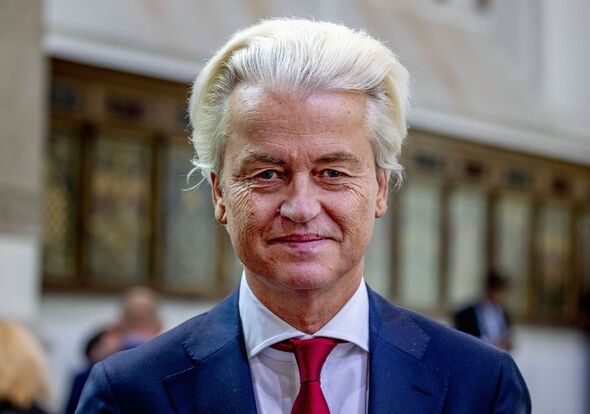The Netherlands is on the verge of a new government, after Geert Wilders’ Freedom Party (PVV) reached a coalition agreement with several rival parties yesterday.
The 60-year-old is plotting to introduce the “strictest asylum policy ever”, however despite the PVV winning the election, he will not lead the new government.
The right-wing anti-establishment politician, who has been heavily criticised in some circles because of his views on Islam, stunned Dutch politics in November after claiming 23.8 percent of the vote and becoming the largest party in the Netherlands.
In the six months taken to thrash out an agreement with the centre-right People’s Party for Freedom and Democracy (VVD), the right-wing agrarian party the Farmer-Citizen Movement (BBB) and the centrist New Social Contract (NSC), Wilders is no longer a triumphant pime minister in-waiting. He stepped back from the top job in order to facilitate a deal.
The Hague appears to be set to lock horns with Brussels over the EU’s new migration rules. After the 27 member states finally agreed on the Pact on Migration and Asylum, the new Dutch government looks poised to flout the rules, opting out of certain parts of the deal.
The new Dutch government may make it difficult for new states, potentially Ukraine, to join the EU. Even under Mark Rutte, the outgoing VVD PM, the Netherlands was more interested in a prospective member meeting requirements about its domestic affairs, rather than a new member being courted for geopolitical reasons.
Under the new government, it appears that scrutiny of wannabe’s member states’ domestic arrangements will become an even bigger priority.
The decision of the VVD to join forces with Wilders’ PVV, branded by many as “far-right”, has already been met with scorn by European politicians.
One of Emmanuel Macron’s top Brussels allies, Valérie Hayer MEP, has hit out at Dilan Yeşilgöz’s party for getting into bed with the PVV.
Expressing her “total disapproval” at Wilders’ party, she said it was “the opposite of what we defend” on a range of policy issues.
